Russia, Ukraine open face-to-face peace talks in Istanbul; Erdogan calls for 'end to tragedy'
Turkish President Recep Tayyip Erdogan has called on Russian and Ukrainian delegations to "put an end to this tragedy" as the two warring sides began face-to-face talks in Istanbul for the first time after several virtual rounds of negotiations.
"The two parties have legitimate concerns, it's possible to reach a solution acceptable to the international community," Erdogan said in a televised speech.
He said it was "up to the two parties to put an end to this tragedy", stressing that the extension of conflict was in "no one's interest".
The Turkish president further said that the progress in negotiations would pave the way for a meeting between Russian President Vladimir Putin and his Ukrainian counterpart Volodymyr Zelensky.
Erdogan and his Russian counterpart Vladimir Putin agreed in a telephone call on Sunday for Istanbul to host a fresh round of talks.
Ukraine’s President Volodymyr Zelensky welcomed the move, saying they must bring peace “without delay”, and signaling his government’s preparedness to compromise on key issues.
The previous rounds of talks have failed to produce a breakthrough, as both the warring sides have refused to compromise on their respective redlines.
Russia’s foreign minister Sergei Lavrov last week said the United States was looking to prolong the military conflict in Ukraine and hindering what he described as “tough” peace talks between Moscow and Kiev.
Biden says US training Ukrainians
US President Joe Biden has again landed himself in trouble with his Freudian slips. Speaking to media persons at the White House, Biden dropped another big bombshell before switching to damage control mode.
Biden seemed to suggest that the American troops are actively training Ukrainian forces to fight Russians, a stunning revelation made by the top US official for the first time.
The US president was responding to a journalist’s question about comments he made during his recent visit to Poland, in which he implied that US forces would be going to Ukraine.
“We were talking about helping train the troops in — that are — the Ukrainian troops that are in Poland,” he stressed, in a classic volta-face.
When he was prodded by the reporter, Biden said: “I was referring to being with, and talking with the Ukrainian troops who are in Poland.”
The remarks were construed to mean that American troops were training Ukrainian troops in Poland, as the armed conflict between Ukraine and Moscow rages on.
Biden’s remarks came days after the US National Security Advisor Jake Sullivan denied that Americans were “currently” training Ukrainians.
The White House and Congressional Democrats were forced into damage control as Biden’s unscripted remark declaring that his Russian counterpart, Vladimir Putin, “cannot remain in power” has already threatened to bring the already strained US-Russia relations closer to collapse.
At the end of his speech from the Royal Castle in Warsaw on Saturday, Biden denounced Putin over Russia’s military operation in Ukraine, saying, he “cannot remain in power.”
Senator James Risch of Idaho, the top Republican on the senate foreign relations committee, described Biden’s comment as a “horrendous gaffe”, urging the president to “stay on script.”
“There are Ukrainian soldiers in Poland interacting on a regular basis with US troops, and that’s what the President was referring to,” said a White House official.
According to a report in POLITICO, both American and British officials had privately agreed in the opening days of the military operation that Ukrainian troops could eventually be trained outside of Ukraine if the conflict dragged on for an extended period.
'Africa to feel food security impact from Ukraine crisis'
European Union’s economic commissioner has warned that the impact of the crisis in Ukraine on global food security could have "dramatic consequences" for African nations that depend heavily on grain imports.
Speaking during his visit to Bucharest, Paolo Gentiloni said the Horn of Africa was likely to feel the maximum impact of the raging conflict in Ukraine, amid soaring prices of food, oil, and fertilizers.
Gentiloni, however, said that food security will not be an issue in Europe, which is grappling with high inflation rather than low food supplies.
Russia and Ukraine supply about one-quarter of the world’s wheat, and 40 percent of Ukraine’s wheat and corn exports are shipped to the Middle East and Africa.
The African continent relies overwhelmingly on Russian and Ukrainian exports, mostly wheat, corn, sunflower oil, and fertilizers, compounding the impact of political uncertainty and drought in the region.
East African countries bank on Russia and Ukraine for almost 90 percent of their wheat import needs. Wheat and its products account for one-third of average national cereal consumption in the region.
Ukraine alone accounts for about 10 percent of the world’s wheat and ships huge quantities of grain to African countries.
Many parts of the East Africa region including Somalia, Ethiopia, and Kenya are already grappling with the worst drought in decades, made worse by a lackadaisical humanitarian response.
South Sudan is dealing with widespread food insecurity due to heavy flooding, putting millions of people at risk of severe hunger.
The global charitable organization Oxfam last week warned that East Africa faces “a profoundly alarming hunger crisis”.
It said that as many as 28 million people across East Africa face severe hunger if the March rains fail, calling for a massive 'no regrets' mobilization of international humanitarian aid to avert destitution.
Wheat prices have already hit a record high globally in the wake of a supply shortage because of the Ukrainian conflict, reaching levels comparable to those during the 2008 financial crisis.
“East Africa faces a profoundly alarming hunger crisis. Areas of Ethiopia, Kenya, Somalia, South Sudan, and beyond are experiencing an unfolding full-scale catastrophe. Even if the rains do arrive this month, full recovery will be near impossible unless urgent action is taken today,” said Gabriela Bucher, Oxfam Executive Director.
The military conflict in Ukraine has now entered its second month, with multiple rounds of tension-easing talks between Kiev and Moscow so far failing to produce a breakthrough.
Western countries, including the US, have decried Russia’s military intervention in Ukraine as unprovoked, but Moscow says the “special operation” aims to “demilitarize” and “denazify” the country after years of fighting between the Kiev government and separatists in the breakaway Donbas region.
Russian President Vladimir Putin announced the military operation on February 24, which he said was aimed at “demilitarization” of the Donetsk and Lugansk regions in eastern Ukraine, largely populated by ethnic Russians.
In 2014, the two regions had declared themselves new republics, refusing to recognize Ukraine’s Western-backed government.
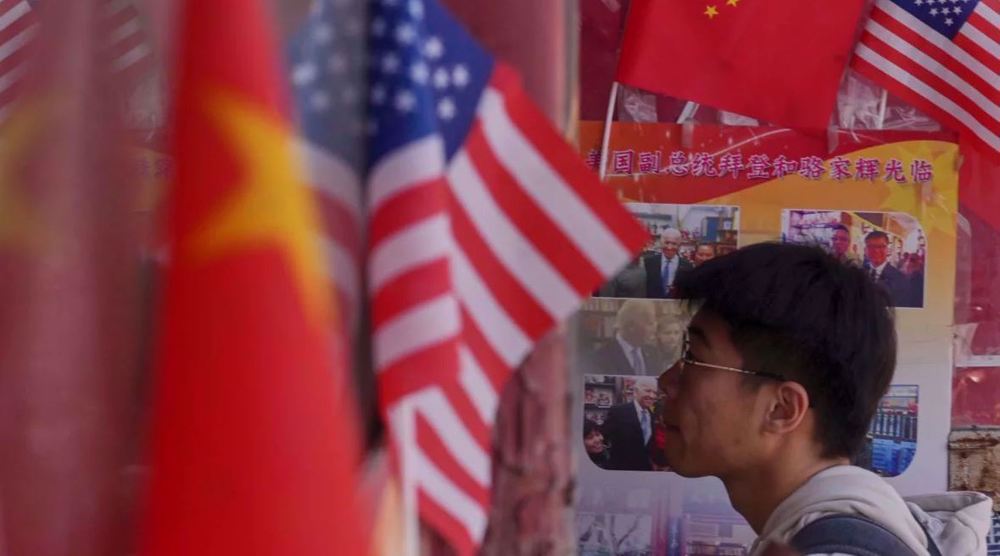
Trump’s tariffs spark fears of price hikes, product shortages in US: Report
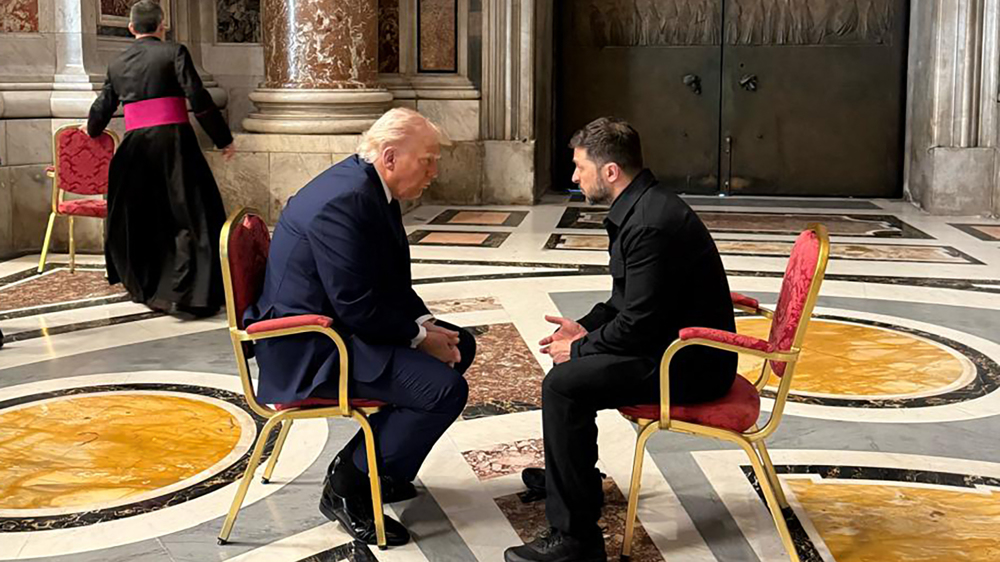
Trump, Zelensky hold 'productive' talks ahead of Pope's funeral in Rome
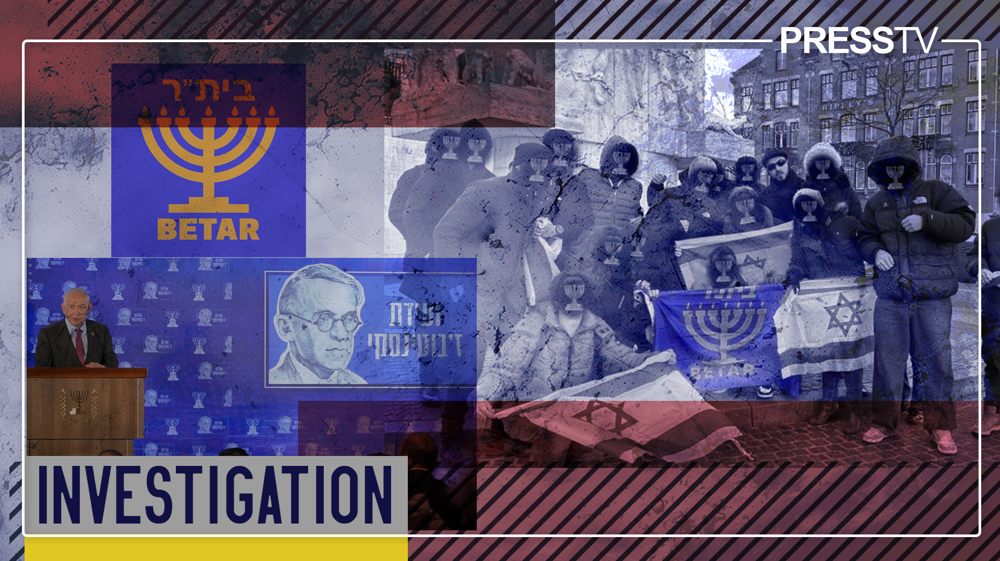
Betar US: America's new face of Zionist terrorism and the darker rebirth of Kahanism
VIDEO | Gazans suffer famine, deprived of basic goods
Putin orders surprise 3-day Ukraine war ceasefire in May
The path to Palestinian liberation from occupation begins with Mahmoud Abbas’ ouster
Pezeshkian visits Baku as Iran, Azerbaijan look to strengthen ties
India, Pakistan exchange fire across Kashmir border for fourth night
‘Systematic genocide’: Gaza media office says Israel deliberately killing women, children
We do not carry weapons, but bandages and hope to save lives: Gaza doctor
Death toll from Iran's southern port blast rises to 46 as over 1,000 injured


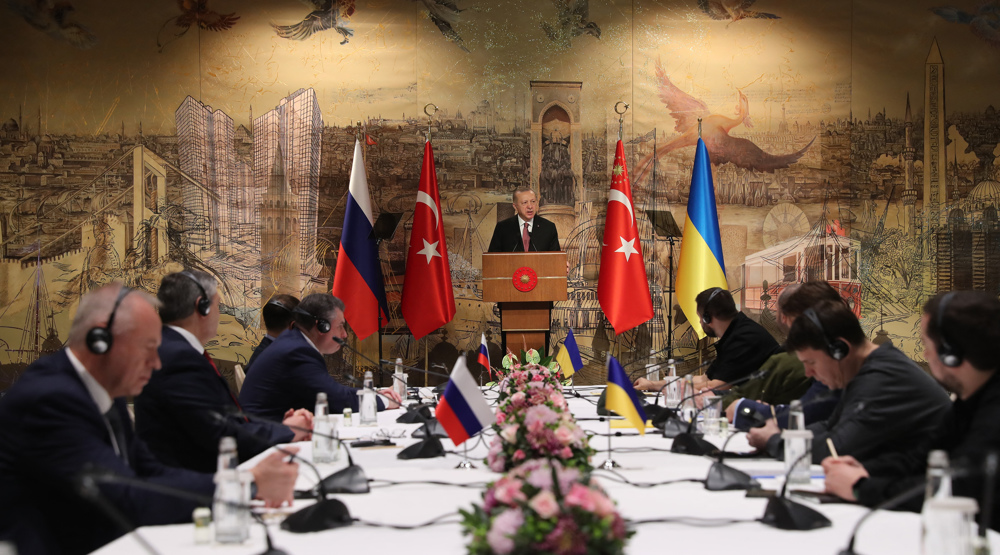
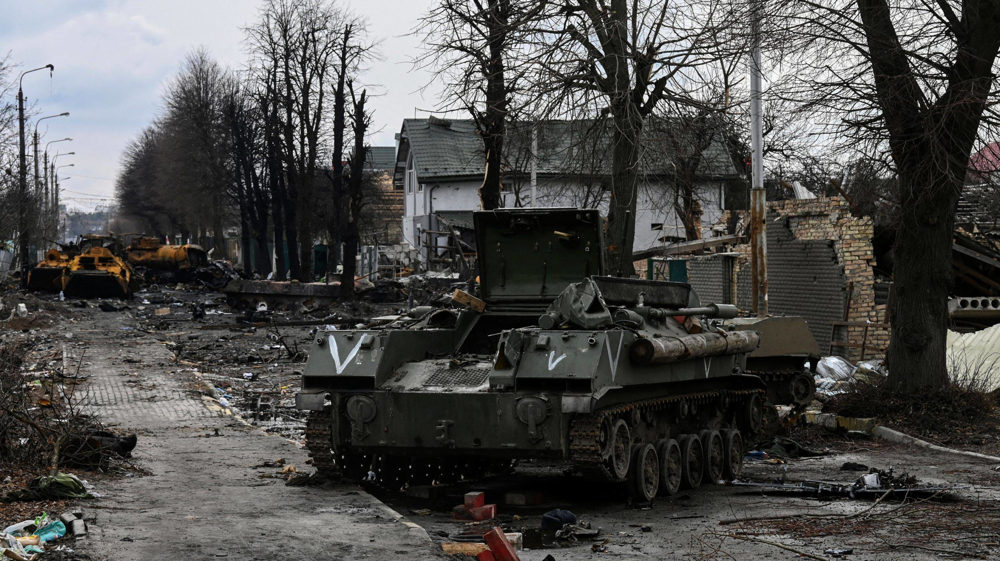



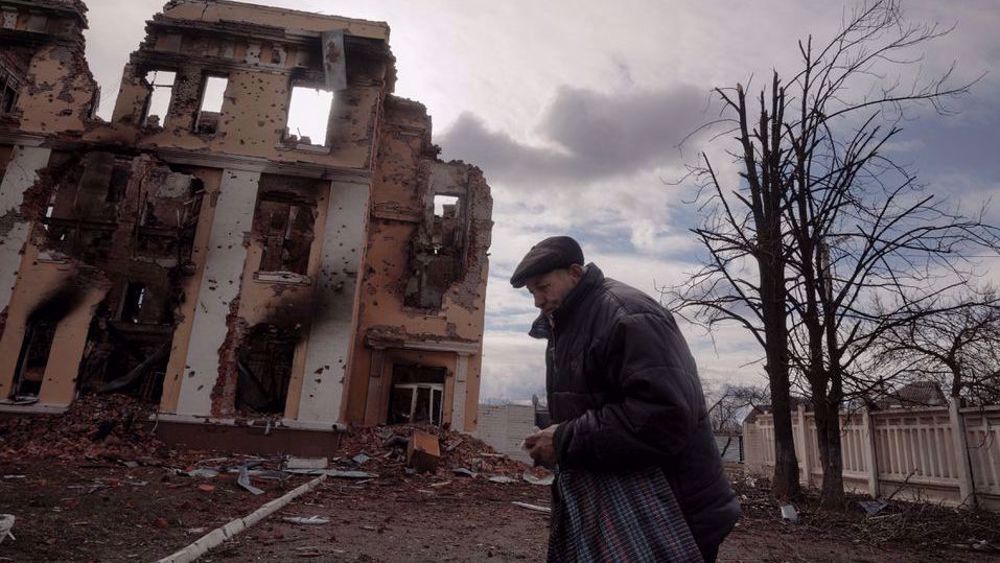
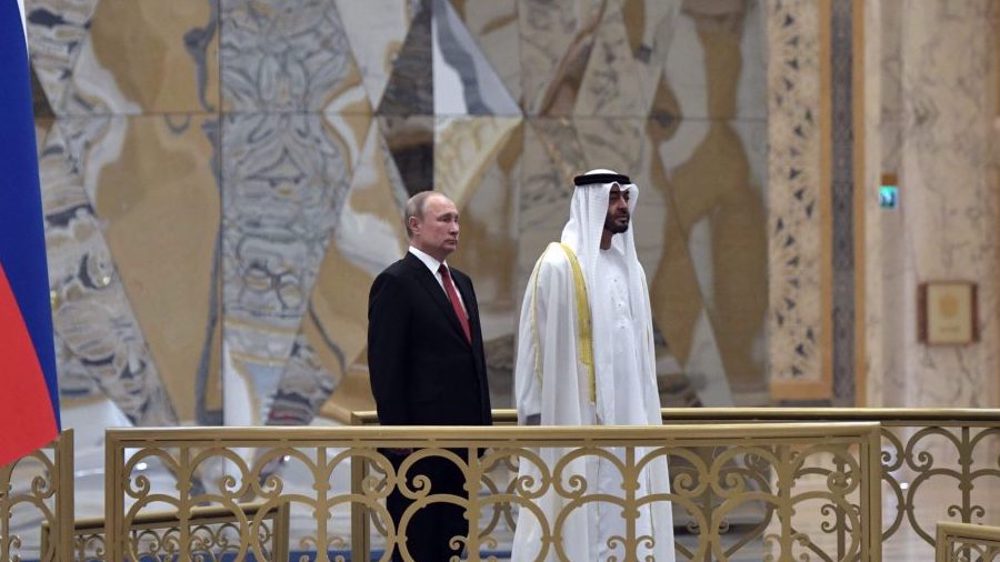
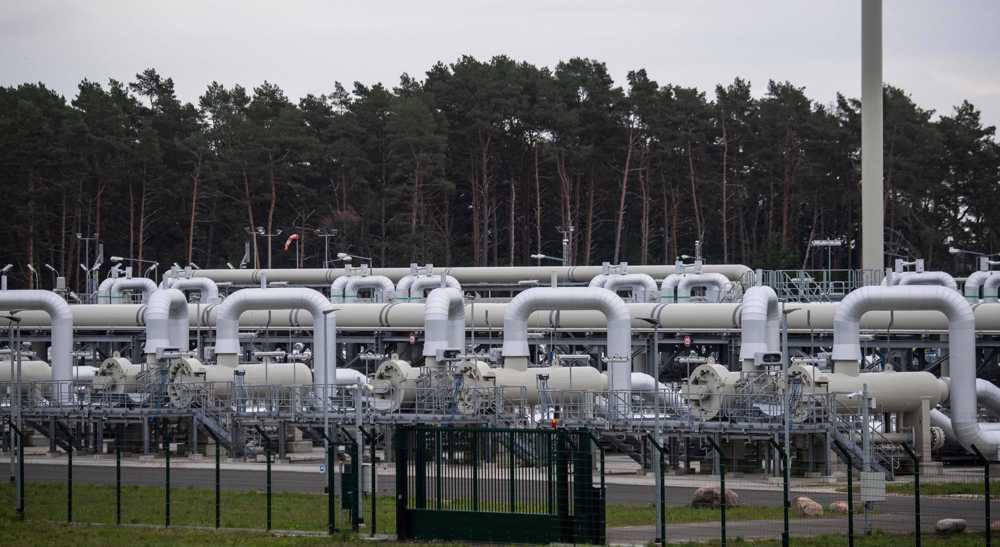
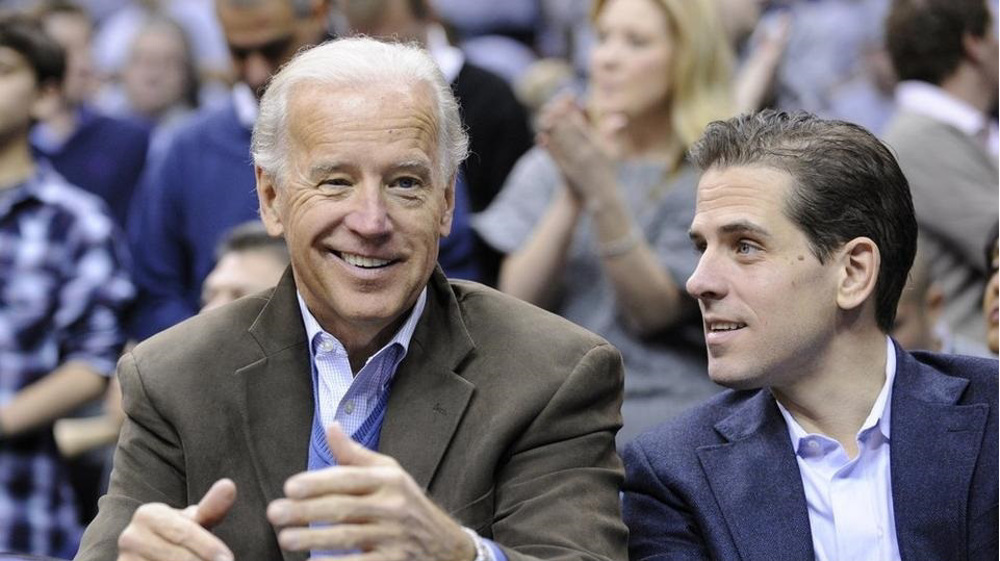
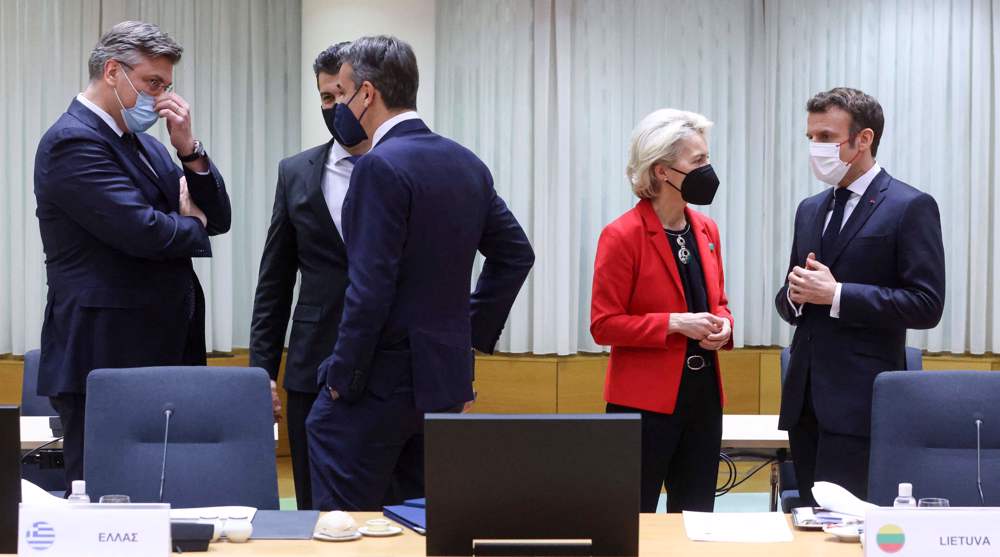

 This makes it easy to access the Press TV website
This makes it easy to access the Press TV website